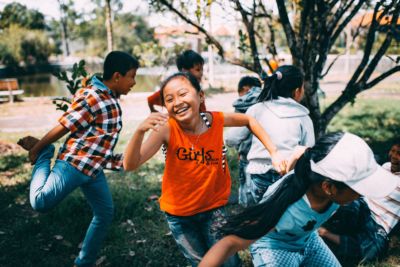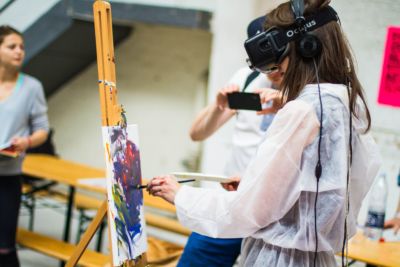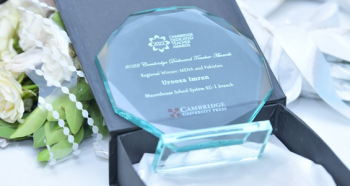When it comes to predicting the future and coping with change, it can be tempting to take the ‘ostrich’ approach. If we pretend it’s not happening, maybe it will all just go away?
But as author and education expert Valerie Hannon discussed in her keynote speech at our Cambridge Schools Conference, how can educators create the conditions for success if they don’t know what success will look like in the 21st century?
Valerie believes we need a new narrative for education, and one that starts with a purpose. She believes that our explicit purpose for education has to be about learning to thrive in a transforming world.
Of course, it could be argued that change is present in any society, at any time. But even the most reluctant ostriches among us must accept that our current global circumstances are unique and unprecedented.

Ready for the world
The need to be ‘Ready for the world’ lies at the heart of our In Focus section of the latest issue of Cambridge Outlook magazine. From technological advancement to existential changes, our young people require knowledge, values and skills to deal with these problems in future.
As Valerie says, we cannot educate our young people as if this is a side issue. It is fundamentally significant and it is our responsibility to arm our learners with the means to thrive as she explains here.
She also argues that what our children need are the skills to navigate and transverse a potentially disruptive world of employment; to be prepared to learn and relearn, again and again, and not assume they’ve got it made with only one skill set.

Disruption
Disruption is a concept that lies at the heart of entrepreneurship and the Cambridge IGCSE Enterprise course is all about finding answers to topical challenges.
We find out how schools in several different countries are using collaboration and creativity to solve potential business issues here.
In Cambridge Outlook, we also like to share your experiences of social responsibility in action, and we were fascinated by two very different examples. From operating completely off-grid in South India to supporting community projects in Uruguay, Cambridge learners are discovering how their actions can positively affect the wider world.
As always, we would love to hear from your school, too. Get in touch at outlook@cambridgeinternational.org





